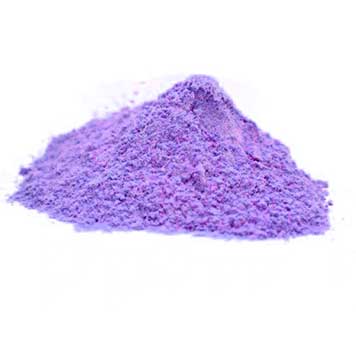
additives and preservatives
Additives and Preservatives Understanding Their Role in Food
In the modern food industry, additives and preservatives play a crucial role in enhancing the safety, flavor, appearance, and shelf life of various food products. While these substances are often met with skepticism by consumers who fear their potential health implications, they are essential to the functioning of food supply systems, especially in a globalized economy. Understanding the role of additives and preservatives can help consumers make informed choices about their diets.
What Are Additives and Preservatives?
Food additives are substances added to food products to improve their characteristics. They can serve various purposes, including enhancing flavor, altering texture, influencing color, and aiding in food processing or storage. On the other hand, food preservatives are a specific type of additive that prolongs the shelf life of products by preventing spoilage, inhibiting microbial growth, and maintaining product integrity during transport and storage.
Types of Additives
There are several categories of food additives, each serving distinct purposes
1. Flavoring Agents These are substances that enhance or impart a specific taste or aroma to foods. Natural flavorings, such as herbs and spices, are often preferred, but synthetic flavoring agents are also widely used.
2. Coloring Agents Additives that alter or enhance the color of foods. These can be natural, like beet juice or turmeric, or artificial, such as Red 40 or Yellow 5, which are often criticized for their potential health risks.
3. Texturizers These substances modify the texture of food products, giving them a desirable consistency. Common examples include stabilizers and emulsifiers, which can prevent separation in products like salad dressings or ice cream.
additives and preservatives

4. Sweeteners Sugar substitutes can be added to reduce caloric content or provide sweetness without the added energy, such as aspartame or stevia.
The Importance of Preservatives
Food preservatives are essential in preventing foodborne illnesses and reducing waste. There are two main categories of preservatives natural and synthetic. Natural preservatives, such as vinegar and salt, have been used for centuries to prolong the shelf life of foods. Synthetic preservatives, such as sodium benzoate and potassium sorbate, are more commonly found in processed foods.
Preservatives help prevent spoilage caused by bacteria, mold, and yeast. Additionally, they can inhibit enzymatic reactions that lead to food degradation, ensuring that products remain safe and palatable for longer. This is particularly important in a world where food transportation occurs over long distances and where consumer demand for convenience has led to an increase in processed foods.
Health Concerns and Regulation
Despite their benefits, the use of food additives and preservatives has raised health concerns among consumers. Some studies have suggested a potential link between certain artificial additives and health issues, including hyperactivity in children and allergic reactions. As a result, regulatory agencies such as the FDA (Food and Drug Administration) in the United States and EFSA (European Food Safety Authority) in Europe closely monitor the safety of food additives and set acceptable daily intake levels.
Consumers are encouraged to read food labels carefully and to be aware of the ingredients in the products they purchase. The trend toward cleaner labeling has prompted many food manufacturers to replace artificial additives with natural alternatives, seeking to appeal to health-conscious consumers.
Conclusion
Additives and preservatives are integral to modern food production, helping to enhance flavor, color, texture, and shelf life while ensuring food safety. While it is essential to be aware of the potential health implications associated with certain additives, it is also important to recognize their necessity in a globally interconnected food system. By educating ourselves about these substances, we can better navigate our food choices and advocate for transparency in food labeling, ensuring our diets remain both safe and enjoyable. As the food landscape continues to evolve, striking a balance between convenience, safety, and health will be crucial for future developments in the food industry.
-
Why Glacial Acetic Acid Food Grade Is Essential in FlavorNewsMay.26,2025
-
Surging Export Growth of Food Additives in ChinaNewsMay.26,2025
-
How Ammonium Nitrate Fertilizer Boosts Crop YieldsNewsMay.26,2025
-
How 1,2,3-Benzotriazole Shields Plastics from UV DegradationNewsMay.26,2025
-
Cyanide in Gold Mining: Protecting People and the PlanetNewsMay.26,2025
-
Aluminum Hydroxide in Modern Sunscreen FormulationsNewsMay.26,2025
-
Understanding Synthetic Rubber OptionsNewsApr.27,2025
Hebei Tenger Chemical Technology Co., Ltd. focuses on the chemical industry and is committed to the export service of chemical raw materials.
-

view more DiethanolisopropanolamineIn the ever-growing field of chemical solutions, diethanolisopropanolamine (DEIPA) stands out as a versatile and important compound. Due to its unique chemical structure and properties, DEIPA is of interest to various industries including construction, personal care, and agriculture. -

view more TriisopropanolamineTriisopropanolamine (TIPA) alkanol amine substance, is a kind of alcohol amine compound with amino and alcohol hydroxyl, and because of its molecules contains both amino and hydroxyl. -

view more Tetramethyl Thiuram DisulfideTetramethyl thiuram disulfide, also known as TMTD, is a white to light-yellow powder with a distinct sulfur-like odor. It is soluble in organic solvents such as benzene, acetone, and ethyl acetate, making it highly versatile for use in different formulations. TMTD is known for its excellent vulcanization acceleration properties, which makes it a key ingredient in the production of rubber products. Additionally, it acts as an effective fungicide and bactericide, making it valuable in agricultural applications. Its high purity and stability ensure consistent performance, making it a preferred choice for manufacturers across various industries.











